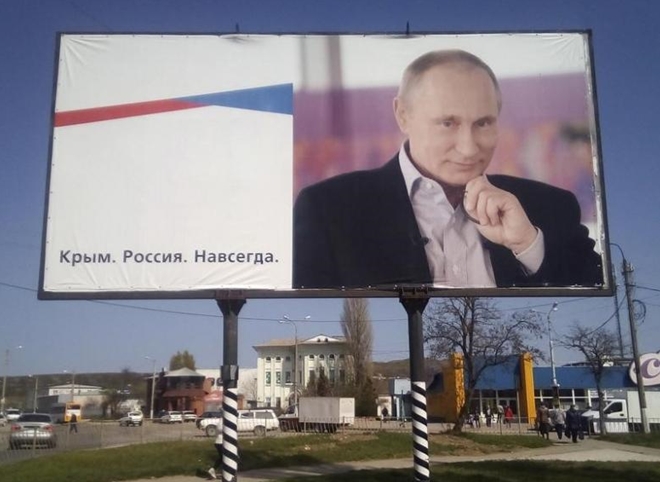EU agrees to extend Russia sanctions until mid-2017 in a signal to Trump
- PM talks with US President-elect Trump
- After Trump's win, China and Mexico move to deepen ties
- Trump to nominate Pruitt to lead US environmental agency: statement
- Trump fills homeland security, environment, China ambassador jobs
The decision was expected and the formal process to extend the sanctions on Russia's defense, energy and financial sectors will take place early next week.
"Some of our colleagues would prefer maybe 12 months but ... what is possible is maintaining our current format, it means six months," European Council President Donald Tusk said.
 |
| A billboard with a portrait of Russian President Vladimir Putin is displayed on a street in Kerch, Crimea, April 7, 2016. The board reads: ''Crimea. Russia. Forever.'' REUTERS/Andrew Osborn/File Photo |
The bloc slapped sanctions on Russia after it annexed Ukraine's Black Sea peninsula of Crimea from Ukraine in 2014 and stepped them up as Moscow went on to support a separatist rebellion in Ukraine's industrial east.
It has extended them by six months each time ever since as Moscow says it would never give back Crimea and the conflict in east Ukraine - which has killed 10,000 people to date - is not resolved despite peace mediation by Germany and France.
Ukraine's President Petro Poroshenko welcomed the decision: "I am sincerely grateful for unwavering unity and solidarity of the European leaders in restoring Ukraine's sovereignty and territorial integrity, including Crimea."

